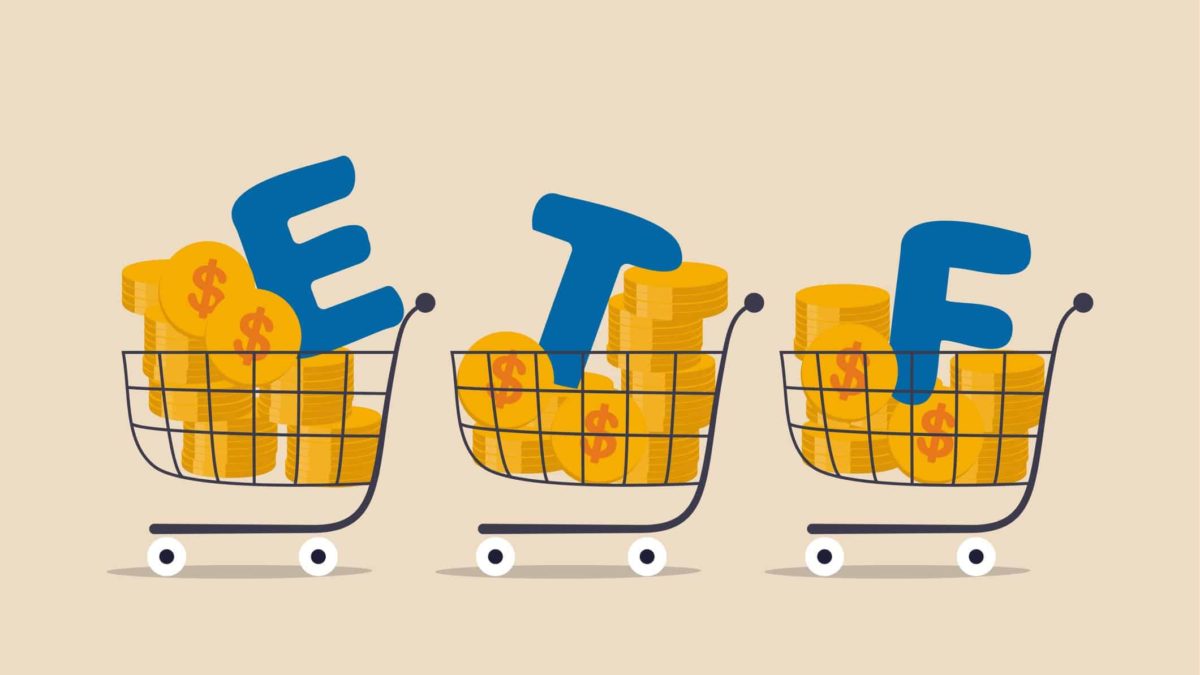This article was originally published on Fool.com. All figures quoted in US dollars unless otherwise stated.
If exchange-traded funds (ETFs) like the SPDR S&P 500 ETF Trust (NYSEMKT: SPY) or the SPDR Dow Jones Industrial Average ETF Trust (NYSEMKT: DIA) just aren't your thing as an investor, you're not alone. Putting your money into individual stocks is considerably more exciting, as each one offers you the chance to plug into a particular company's growth story. Conversely, ETFs are just big baskets of equities bundled into logical groupings, and their results can be weighed down by their laggards as much as they're lifted by their leaders.
Don't assume, though, that this lack of excitement means they're destined to be subpar performers. Exchange-traded funds generally perform just as well as most portfolios of hand-picked stocks do — if not better — and are just as capable of turning your consistent stream of moderate investments into a million-dollar retirement stash.
In fact, ETFs may actually be better suited for the task of retirement investing than individual stocks are.
The broad market is bullish enough
Most investors inherently understand that ETFs such as the aforementioned SPDR S&P 500 ETF Trust and the SPDR Dow Jones Industrial Average ETF Trust reflect the performances of the S&P 500 (SNPINDEX: ^GSPC) and Dow Jones Industrial Average (DJINDICES: ^DJI), respectively. For better or worse, they're meant to match the performance of the broad market rather than beat it.
What you may not fully appreciate, however, is just how well the broad market performs over time. Even after this year's bear market sell-off, the S&P 500 is 50% higher than where it was five years ago, and is up by more than 180% over the past 10 years. Over the past couple of decades, it's up more than 300%.
Those results are in line with the market's long-term averages. When factoring in reinvested dividends, the S&P 500's average compound annual return for the past 100 years stands just above 10%. Some years are better, and some are worse. Some years are even losers. Given enough time, though, a well-diversified portfolio of stocks can reasonably be expected to gain on the order of 10% per year.
In practical terms, this means that if you make moderate-sized annual investments of $5,000 into an S&P 500 fund within a tax-deferred account, your balance should be about $1 million after 31 years. While it could be tougher in some years than others to scrape together that $5,000, even for those living on average incomes, becoming a millionaire by the time you retire is certainly possible.
This leads to an obvious question: If booking "market average" results can do that, wouldn't chasing after the market's best "story stocks" offer you an even easier shot at building an even bigger fortune? Maybe. But, the data says don't count on it.
Stock picking is just plain hard to do well
For the record, the majority of professional stock pickers do not consistently beat the market. Most of their actively managed portfolios produce returns below those of benchmarks like the S&P 500, in fact.
Standard & Poor's keeps tabs on the performance of each and every mutual fund available to U.S. investors, and publishes updated information on their results every few months. Like every other update thus far, the one posted in September — for results through June — indicates that most large-cap funds failed to beat the S&P 500 over the past 12 months. Specifically, more than 55% of large-cap funds trailed the index.
So 45% did outperform it, which is … not terrible. But that factoid requires a major footnote. The fund industry as a whole fared relatively better than usual through the first half of the year — most likely because the market suffered losses that were largely expected by the pros, who shifted some assets out of stocks in anticipation. Not being fully invested in stocks helped their comparative performances. Looking back at the past five years reveals more typical results: More than 84% of U.S. funds underperformed the S&P 500. And over the past 10 years, 90% of mutual funds sold to investors in the United States trailed the S&P 500's net gain.
Those lagging performances are largely the result of fund managers' efforts to beat the market.
It's not just the mainstream mutual fund industry with a performance problem either. Most hedge funds lag the overall market as well. In the same vein, the average short-term "day trader" also regularly misfires. While performance estimates regarding traders in this category should be taken with a grain of salt in light of how little data is actually collected from them, it's believed that between 70% and 90% of retail, non-buy-and-hold stock speculators end up losing money rather than making it.
All of these poor performances ultimately reflect how unlikely it is that individuals will manage to pick strategies that consistently outperform the market. And when you're trying to beat the averages by guessing what is essentially unguessable, it's easy to slowly nickel and dime your portfolio to death.
When investing in ETFs, however, people typically do so with plans to hold those stakes through the good times and bad, and add to them regularly to take advantage of dollar-cost averaging. This makes ETFs well-suited to a strategy that largely relieves you of two hazardous temptations — the urge to lock in short-term gains by selling, and the urge to hold off on putting money into the market until there's a major low. By dodging those market-timing snares, you avoid playing the version of the investing game that even most professionals lose.
You can still beat the market with ETFs
If, after reading all that, you're still interested in hunting for investment options that at least give you a fighting chance at outperforming the S&P 500 — no problem. While the SPDR S&P 500 ETF Trust is a go-to pick as a low-fee foundational portfolio holding, there are many other exchange-traded funds that feature different approaches. For example, mid-cap funds like the iShares Core S&P Mid-Cap ETF (NYSEMKT: IJH) and the Technology Select Sector SPDR Fund (NYSEMKT: XLK) both have long histories of S&P 500-beating performance. Both are also easy to hold for the long haul, even during periods when things get rocky.

The bottom line is investing in ETFs can turn you into a millionaire just as readily as buying individual stocks can. Better yet, they can give you a path to that outcome that doesn't require the sort of active investing that often ends up doing more harm than good.
This article was originally published on Fool.com. All figures quoted in US dollars unless otherwise stated.








